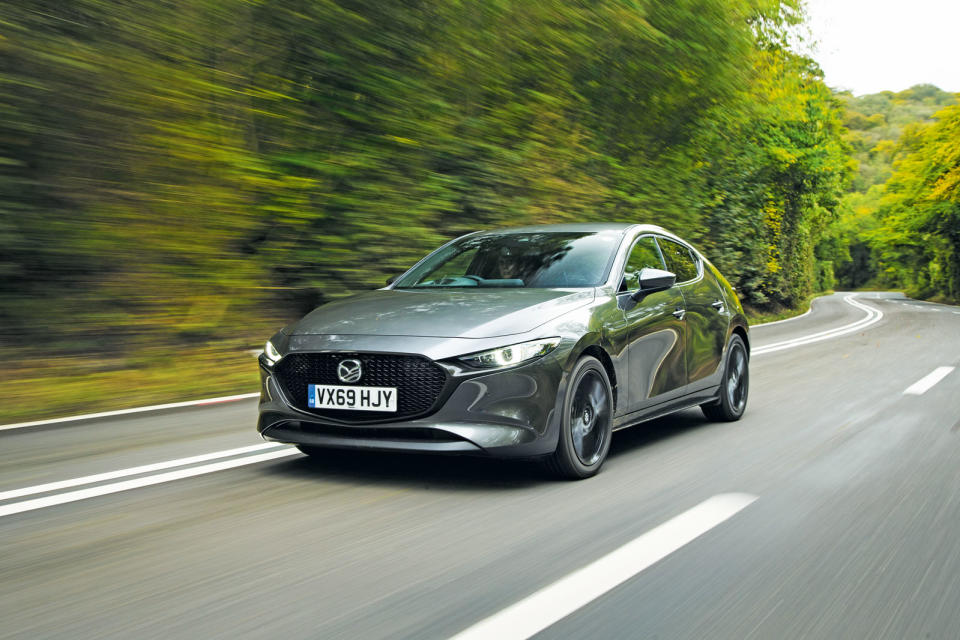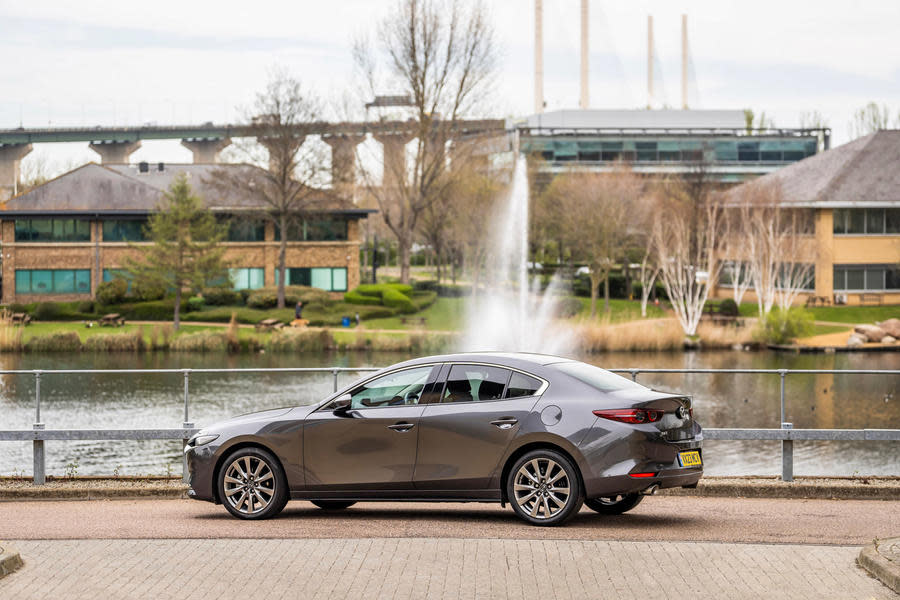Mazda 3

Driving the Mazda 3, like most of the brand’s cars, can feel like stepping back in time, but in a good, rose-tinted glasses kind of way.
It’s like driving an older car, one that preserves much of the mechanical tactility and simple shapes and doesn’t hit you over the head with nannying safety systems. However, it’s one that has all the useful advances in safety and emissions and doesn’t make you resort to a paper map or a wallet of CDs.
Mazda has never been afraid to go against the grain, both in the way its cars operate and the way they're powered. It’s also famously sceptical about EVs. It plans to launch a scaleable EV platform between 2025 and 2030 but maintains that it can achieve more for the planet in the short term by simply making more efficient internal combustion engines than by chucking them all in the bin and taking a massive leap with both feet into electric power.
Central to that strategy is its Skyactiv-X technology. It’s unlike any other petrol engine currently in production; it combines both spark and compression-ignition technologies to boost efficiency; and it came to market in this fourth-generation Mazda 3 hatchback.
Mazda 3 range at a glance
Ever since the very short-lived 1.8 Skyactiv-D diesel option was dropped, there has been a choice of just two engines, both 2.0-litre petrol four-cylinders with 24V mild-hybrid assistance and a choice of a six-speed manual or torque-converter automatic gearbox.
The e-Skyactiv-G is the more conventional unit, while the more powerful e-Skyactiv-X has Mazda's compression-ignition technology. Earlier versions, named simply Skyactiv-X (without the e) had very slightly less power.
There's also the Mazda 3 Saloon, which is exclusively available with the e-Skyactiv-X engine and a manual gearbox.
Version | Power |
|---|---|
120bhp | |
183bhp (177bhp*) | |
183bhp (177bhp*) |
*2019-2021

]]>

 Yahoo Autos
Yahoo Autos 